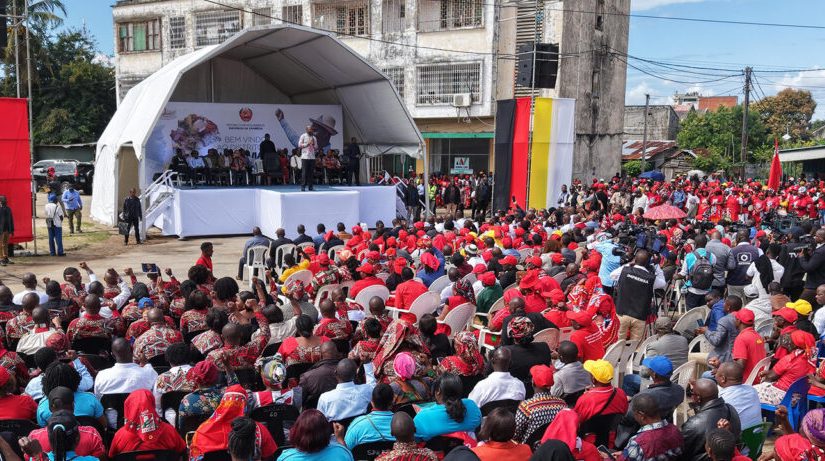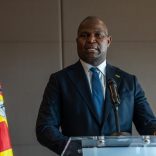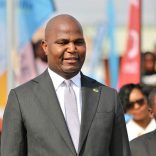Mozambique President Chapo visits Portugal
Mozambique: Chapo wants parliament in Mocuba, thematic capitals

Photo: O País
Mozambican President Daniel Chapo said today that he wants a future national parliamentary headquarters to be built in the city of Mocuba, in the central province of Zambézia, reiterating his intention to decentralize government institutions.
“Mocuba was chosen not only for its strategic geographic location, but also for its symbolic nature. It is where paths cross and the country embraces; it is the point where the north, centre and south of Mozambique meet. Therefore, it makes perfect sense for it to be the place where major national decisions are made,” said Daniel Chapo, quoted in a presidential statement referencing a popular rally held in Zambézia on Thursday.
According to the head of state, Mozambique is a “vast and diverse” country, and there is a need to use this diversity as a strategic advantage. “By valuing each province with a specific purpose, we are building a more balanced, more efficient, and more just Mozambique,” he stated.
The project envisages the construction of a ‘Parliamentary Citadel’, with infrastructure to accommodate the parliament, offices, legislative research centres, session rooms and residential areas for deputies and public servants, as well as spaces for interaction with civil society and digital platforms “to promote participatory democracy”, the document states.
“The project, still in its preliminary design phase, should be implemented in phases and with the support of public-private partnerships,” the statement reads, adding that the plan also includes the construction of a National Institute of Parliamentary Studies to strengthen legislative capacity and bring parliament closer to the population.
READ: Mozambique: Thematic capitals to decentralize the State – ENDE 2025-44
In addition to Mocuba as the parliamentary capital, Chapo also advocated the idea that each province should host a specific national function, aligned with its historical, economic, cultural, or geographic profile.
The head of state “believes that this functional redistribution will contribute to relieving pressure on Maputo, boosting the growth of other regions, and consolidating a plural, inclusive, and interconnected national identity”, the presidential statement reads.
For the Mozambican president, decentralization is not limited to the transfer of institutions, but requires “a paradigm shift regarding the role of provinces in national development”.
“According to the president, the decentralization underway in the country must go beyond the delegation of administrative powers. It must also be geostrategic, functional, and symbolic, in order to combat excessive centralism, reduce regional inequalities, and strengthen national cohesion,” the Mozambican presidency concludes.












Leave a Reply
Be the First to Comment!
You must be logged in to post a comment.
You must be logged in to post a comment.